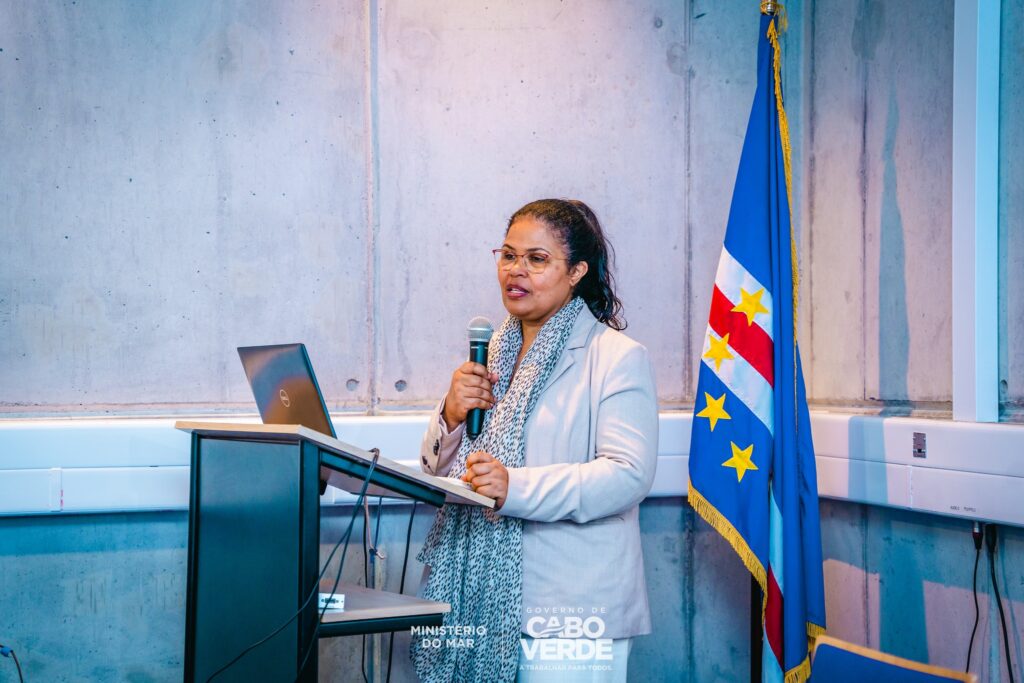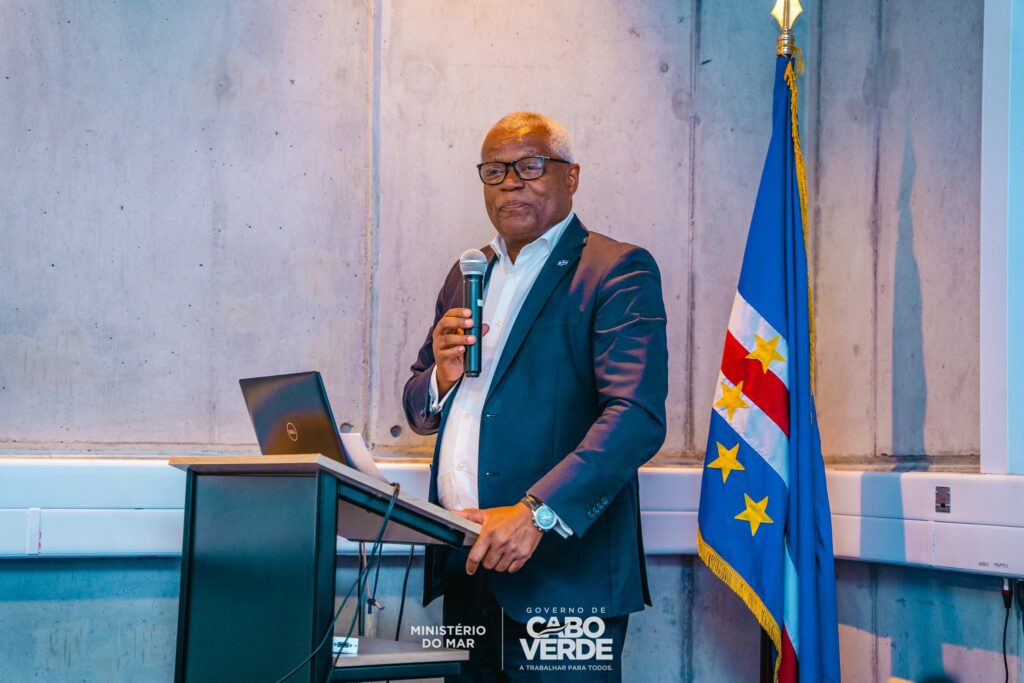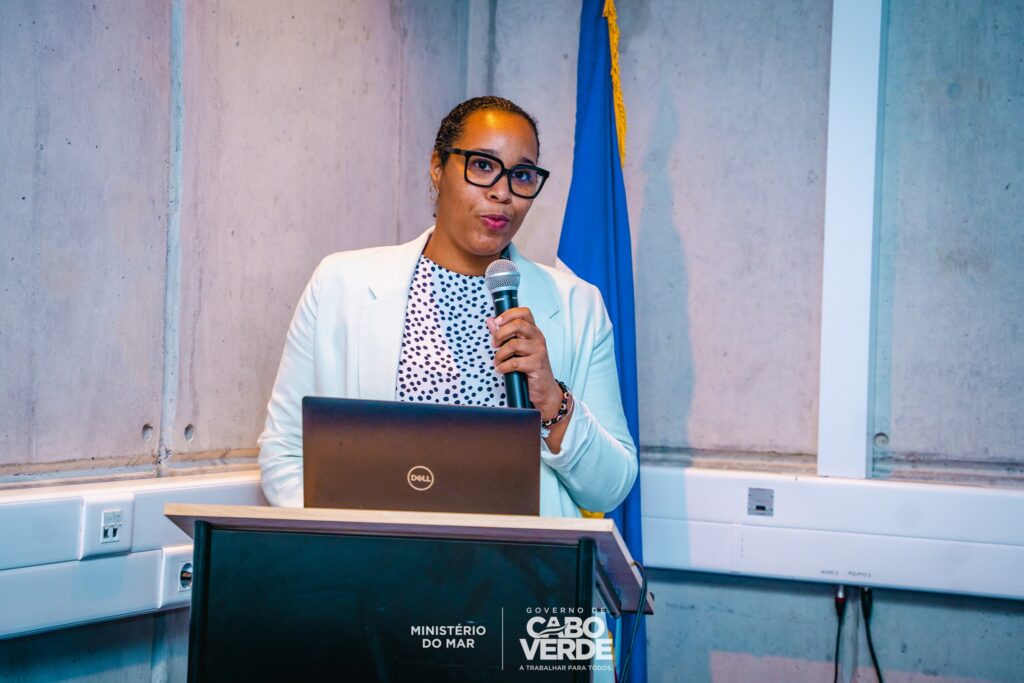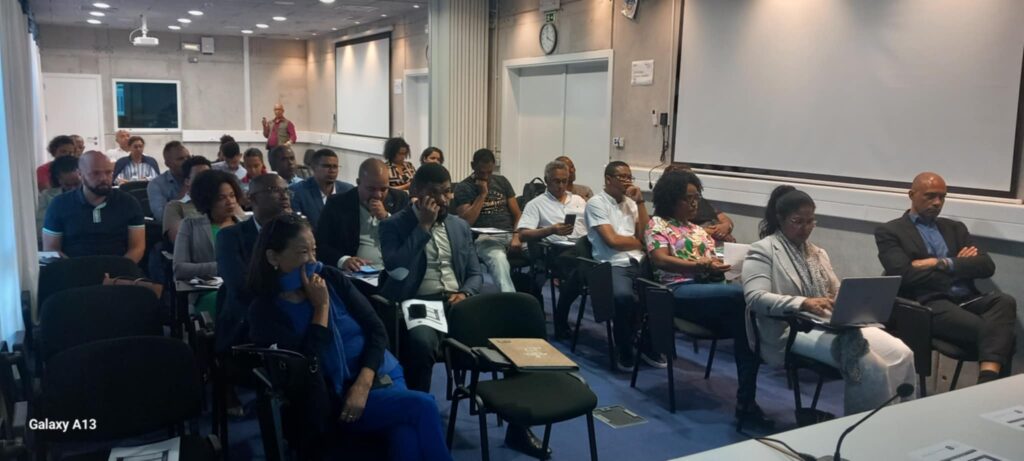Cabo Verde celebrates publication of second FiTI Report
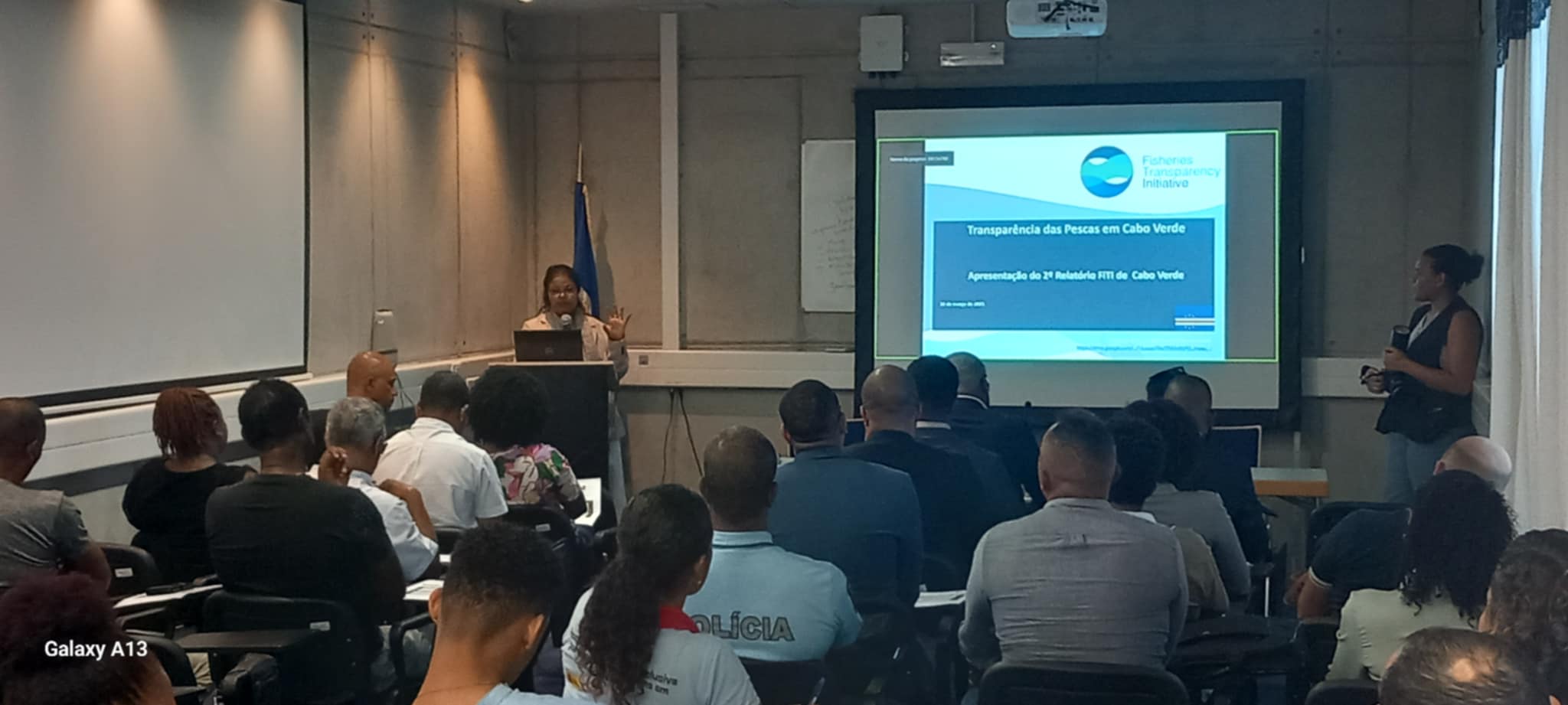
Cabo Verde’s National Multi-Stakeholder Group (MSG) celebrated the country’s second FiTI Report at a seminar on 10 March in Mindelo, São Vicente Island. The report, published on 17 January 2025, provides fisheries information for calendar year 2023.
The seminar was attended by approximately 30 participants, including the Minister of the Sea, Eng. Jorge Santos, as well as representatives from key institutions in the fisheries sector, such as the Institute of the Sea (IMAR), the School of the Sea (EMAR), the Maritime and Port Institute (IMP), and the Shipyards of Cabo Verde (CABNAVE). Other attendees included representatives from the African Union-Interafrican Bureau for Animal Resources (AU-IBAR), the Delegation of the European Union in Cape Verde, private sector entities such as FRESCOMAR and NORTUNA, and non-governmental organizations including Blue Ventures, Fauna & Flora, and Terrimar. Additionally, associations of fishermen and fish vendors from the fishing communities of São Vicente and Santiago were present.
The Minister of the Sea emphasized that this second FiTI Report, presented in a public session, represents a crucial step in promoting transparency. He stressed the importance of stakeholders critically evaluating the information to ensure an accurate and detailed assessment.
The Minister explained that FiTI is an initiative dedicated to assessing fishing conditions, with a strong focus on species protection and the promotion of sustainable fishing. “The principles of FiTI align with Cabo Verde’s commitment to good governance and transparency,” said Minister Santos.
In this report, the National MSG outlined 17 key recommendations that the Minister considers essential for strengthening the sustainability of national fisheries. He stated that the government receives the report “with great responsibility” and is committed to enhancing the efficiency and transparency of fisheries management, under the oversight of the National Directorate of Fisheries and Aquaculture.
Minister Santos underscored that transparency and good governance are fundamental principles in Cabo Verde’s democratization process and must be consistently upheld by government officials to foster public trust.
In addition to its recommendations, the report identifies several areas for improvement, including the assessment of fish stocks. It calls for stock assessments to support the timely publication of catch data and advocates for the disclosure of fisheries access agreements and contracts with third countries and international entities. Another critical area is financial transparency, with recommendations for publishing details on direct financial transfers and subsidies to fishing operators. Furthermore, the report highlights the importance of ratifying key fisheries-related conventions, such as the International Maritime Organization (IMO) and International Labour Organization (ILO) Conventions and the International Convention on Standards of Training, Certification and Watchkeeping for Fishing Vessel Personnel (STCW-F).
Cabo Verde’s second FiTI Report reflects the country’s commitment to improving governance and accountability in the fisheries sector. The full report for Cabo Verde can be found here.
